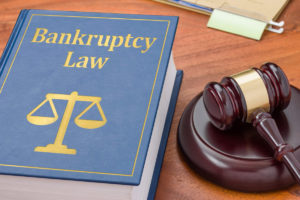The Limited Circumstances Where You Can Wipe Out Tax Arrearages in Bankruptcy
 In Chapter 7 bankruptcy proceedings, you can permanently eliminate certain debts in exchange for transferring property to the bankruptcy trustee, who sells those assets to satisfy creditors. Among debts generally considered not to be dischargeable in Chapter 7 are tax arrearages. That’s not entirely true, though. You can discharge some tax debt in Chapter 7 but only in extremely limited circumstances.
In Chapter 7 bankruptcy proceedings, you can permanently eliminate certain debts in exchange for transferring property to the bankruptcy trustee, who sells those assets to satisfy creditors. Among debts generally considered not to be dischargeable in Chapter 7 are tax arrearages. That’s not entirely true, though. You can discharge some tax debt in Chapter 7 but only in extremely limited circumstances.
When You Can Discharge Tax Debts in Chapter 7
Certain types of tax obligations may not be discharged under any circumstances. These include tax liens attached to property, property taxes incurred before bankruptcy filing, and taxes collected by a third party (e.g, FICA taxes). It is important to understand that even when a Chapter 7 bankruptcy discharges your personal obligation to pay tax debts, it will not remove or change any liens on your property.
To be eligible for discharge under Chapter 7, the tax debt must meet five specific requirements:
- Only income taxes can be discharged—Excise taxes, employment taxes, property taxes, and other non-income taxes are generally non-dischargeable.
- The arrearage may not have been incurred as the result of fraud or willful tax evasion—If the taxing authority can show any instance of intentional evasion or misrepresentation, the tax cannot be discharged.
- The tax return must have been due at least three years before you filed for bankruptcy—You cannot discharge a tax debt on an obligation from a return that was due less than three years ago.
- You must have actually filed a tax return, and you must have done so at least two yearsbefore your bankruptcy filing—You cannot discharge tax obligations arising out of a substitute return (where the IRS or taxing authority imputes income and prepares the return for you). Furthermore, the tax return must have been properly filed at least two years before your bankruptcy petition.
- The taxing authority must have actually assessed a tax liability at least 240 days prior to your bankruptcy filing.
Contact Heath, TX Bankruptcy Attorney Carrie Weir
I offer a free initial consultation to all potential bankruptcy clients. Contact my office by e-mail or call me at 972-772-3083 for a private meeting. With offices in Rockwall, Texas, I represent clients in Heath, Greenville, Lavon, Wylie, Mesquite, and Rowlett.








Speak Your Mind